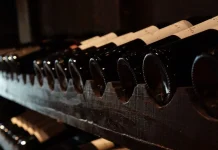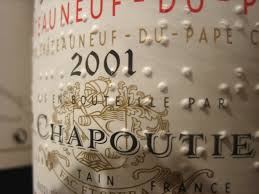For those who don’t know, the WSET – Wine & Spirit Education Trust – is the most important diploma in wines and spirits. It is internationally recognized and it’s a true institution in the wine sector. The WSET allows everyone to learn different tasting techniques to be able to talk more precisely about wine. It is a real asset on your resume since it is recognized on every continent!
The Levels of the WSET
There are four different levels of WSET:
- First, level 1 is for wine lovers who want to learn the art of wine tasting
- Then level 2 which is more technical. We will find questions about the grape varieties, the wine regions, wine labelling and wine making.
- Level 3 is for professionals. The aim will be to highlight the different stages of wine production: viticulture, winemaking, maturing or even the bottling.
- Finally the WSET Level 4 Diploma in Wines is an expert-level qualification covering all aspects of wine.
1- Questions about wine

Here is a series of questions that can help you to get ready for the WSET. The questions are about wine in general.
1 – What is the style of Chablis?
2 – Which country produces the most wine (by volume) in Europe?
3 – What does the mention BSA (Gross Ageless) on a bottle of champagne?
4 – What are the terms “Gross” or “Gross without dosage” referring to on a bottle of champagne?
5 – What characteristics are generally attributed to a “Blanc de Noir” Champagne?
6 – What does a mature Margaux generally looks like?
7 – What characteristics are generally attributed to a Barolo?
8 – What are the aromas of a corked wine?
9 – What is Armagnac?
10 – Where are the sensors detecting bitterness located?
2- Questions about grape varieties and wine-growing regions

The next series is about grapes and wine producing regions.
1 – What is the most common grape variety in Bordeaux wines?
2 – In France, which wines do we associate with the “Riesling” variety?
3 – With which grape variety is Cognac made?
4 – From which grape variety is a Champagne made with the mention “Blanc de Blanc”?
5 – From Which grape variety is a Champagne made with the mention “Blanc de Noir”
6 – What is the most common grape variety in red Burgundy wines?
7 – What is the most common grape variety in white Burgundy wines?
8 – Which grape variety of origin of the Cahors has an important success in Argentina?
9 – Which grape variety is used to produce Meursault (Burgundy wine)
10 – Which grape variety is used to produce rosé wines in Spain?
11 – What wine is made from “Pinotage”?
12 – Which grape variety is used to produce famous white wines in both Germany and Australia?
13 – What is the main region of Sauvignon blanc from France?
14- Which region has a reputation for producing the best Chardonnay wine?
15- Which regions are part of the Rhône Valley?
16- Name one of New Zealand’s wine-growing region?
17- Which grape varieties are grown in the Alsace region?
18- In which country is Cava produced?
19- Where is the region called “Constantia” located?
20- Which regions have a reputation for producing exceptional Sauvignon Blanc?
21- In which country is the designation DOCG used?
22- Which is the main grape variety in the blending of Anjou rosé?
23- Do we mostly drink young or old Pinot Noir?
24 – Which grape varieties are often found in French and Spanish rosé wines?
3- Questions about wine production

Finally, here’s a series of questions of the WSET concerning the production.
1 – What do old oak containers (often barrels) bring?
2 – What term is used on Italian wine labels to indicate that grapes come from the historical centre of the production region?
3 – What does the Solera system refer to?
4 – Compared to red wines, at which temperature do white wines make fermentation?
5 – From which parts of the grape does the color, tannins and flavor come from?
6 – What does the German term “spatlese” mean in the wine sector?
7 – Which factor is the most dangerous for wine production?
8 – What is Botrytis?
9 – Of what size is a standard glass (ISO)?
Sign up to receive the answers to prepare the WSET!
And if you want to learn more about wine, you can subscribe to Aveine’s Newsletter and follow us on the social media.









Very useful information!